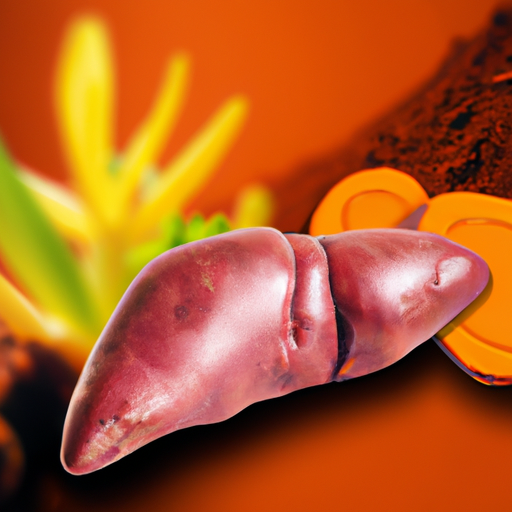If you’re seeking natural methods to improve your health, turmeric and green tea are worth considering. These ingredients have been utilized in traditional medicine for generations and have become increasingly popular in modern times for their various health advantages.
Turmeric contains curcumin, a compound that has powerful anti-inflammatory properties. Inflammation is the body’s natural response to injury or infection, but chronic inflammation can contribute to a variety of health problems such as arthritis and heart disease.
Green tea, on the other hand, is rich in antioxidants called catechins, which help protect cells from damage caused by free radicals. Free radicals are unstable molecules that can cause oxidative stress and contribute to chronic diseases such as cancer and Alzheimer’s.
By incorporating turmeric and green tea into your diet, you can potentially improve your health in several ways.
Key Takeaways
- Turmeric and green tea have powerful anti-inflammatory properties that can aid in fat loss, improve cognitive function and memory, and positively impact cardiovascular, brain, digestive, and skin health.
- Turmeric contains curcuminoids, which can block the development of certain cancers, while green tea consumption has been linked to a lower risk of developing several types of cancer.
- Turmeric has anti-inflammatory properties that can reduce the risk of heart disease and lower cholesterol levels, including LDL cholesterol. Green tea can lower blood pressure and cholesterol levels and protect against free radicals and LDL cholesterol buildup.
- Turmeric and green tea can improve digestive health by reducing inflammation and promoting healthy gut bacteria, and can improve skin health by reducing acne and protecting against sun damage. However, it’s important to talk to a healthcare provider before taking these supplements and to limit intake to avoid potential side effects and drug interactions.
Anti-inflammatory Properties of Turmeric
Got inflammation? Turmeric’s got you covered with its powerful anti-inflammatory properties! For centuries, turmeric has been used as a natural remedy to reduce inflammation in the body. This spice contains a compound called curcumin, which has been shown to have strong anti-inflammatory effects.
Curcumin works by blocking the activity of enzymes that cause inflammation in the body. It also reduces the production of cytokines, which are proteins that promote inflammation.
In addition to its anti-inflammatory properties, turmeric is also a versatile ingredient that can be used in a variety of ways. You can incorporate turmeric into your diet by adding it to smoothies, soups, and curries. There are also many turmeric recipes available online that you can try.
By incorporating turmeric into your diet, you can take advantage of its many health benefits and reduce inflammation naturally. Now, let’s move on to the next topic and learn about the antioxidant properties of green tea.
Antioxidant Properties of Green Tea
If you’re looking for a natural way to boost brain function, aid in fat loss, and reduce your risk of diseases, green tea may be the answer. This popular beverage is packed with antioxidants that have been shown to improve cognitive function and protect against age-related decline.
Additionally, green tea has been linked to increased fat burning and a reduced risk of chronic diseases such as cancer and heart disease. So, if you’re looking for a simple and effective way to improve your overall health, consider adding green tea to your daily routine.
Link to improved brain function
Turmeric and green tea have been found to enhance cognitive function and memory, making them valuable additions to any brain-boosting routine. Research shows that the bioactive compounds in green tea and turmeric have a positive impact on brain health by increasing blood flow and oxygen to the brain.
The following nested bullet point list highlights some of the ways in which these two natural remedies can benefit your brain:
- Green tea contains caffeine, which stimulates the central nervous system and can improve mood, alertness, and memory.
- Additionally, green tea contains theanine, an amino acid that promotes relaxation and reduces stress, which can improve cognitive function and memory.
- Curcumin, the active compound in turmeric, has been shown to improve cognitive function and memory in people with Alzheimer’s disease and depression.
- Curcumin also has anti-inflammatory properties that can reduce inflammation in the brain, which is linked to cognitive decline.
In addition to their role in improving brain function, turmeric and green tea have also been found to aid in fat loss. This suggests that incorporating these two natural remedies into your daily routine can have a positive impact on both your physical and mental health.
Role in fat loss
You’ll shed pounds like crazy with the powerful fat-burning abilities of these two natural remedies. Turmeric, a spice commonly used in Indian cuisine, has been shown to increase metabolism and reduce inflammation, making it an effective tool for weight loss.
Green tea, on the other hand, contains compounds called catechins that can boost fat burning and aid in weight loss.
To incorporate turmeric and green tea into your weight loss journey, consider meal planning with these ingredients. Turmeric can be added to soups, stir-fries, or even smoothies, while green tea can be enjoyed as a hot or cold beverage.
Additionally, incorporating regular exercise routines can further enhance the weight loss benefits of these two natural remedies. Whether you’re looking to shed a few pounds or achieve your fitness goals, turmeric and green tea can be powerful tools in your weight loss arsenal.
By incorporating these natural remedies into your routine, you can not only achieve your weight loss goals but also reduce your risk of diseases like heart disease and diabetes. These two ingredients have been shown to have numerous health benefits beyond weight loss, making them a valuable addition to any healthy lifestyle.
Reduced risk of diseases
Incorporating these natural remedies into your daily routine can lower your chances of developing chronic illnesses such as heart disease and diabetes. Turmeric and green tea have been found to reduce inflammation in the body, which is a major contributor to these diseases.
Turmeric contains a compound called curcumin, which has powerful anti-inflammatory effects. Green tea, on the other hand, contains catechins, which have been shown to reduce inflammation and improve immune function. Reducing inflammation is important for overall health, as it can reduce the risk of chronic diseases.
In addition to these benefits, both turmeric and green tea have been found to support the immune system. This is important because a strong immune system is better able to fight off infections and diseases. By incorporating these natural remedies into your daily routine, you can improve your overall health and reduce your risk of developing chronic illnesses.
As we move on to the next section about cancer prevention, it’s important to note that reducing inflammation and supporting the immune system can also play a role in preventing cancer.
Cancer Prevention
If you’re interested in cancer prevention, you’ll want to know about the research on turmeric and its potential to help reduce the risk of cancer. Studies have shown that turmeric contains compounds that may help fight cancer cells and prevent tumors from forming.
Another option to consider is green tea, which is known for its antioxidant properties and has been linked to a reduced risk of certain types of cancer.
Research on turmeric and cancer prevention
Recent studies have shown that adding turmeric to your diet can potentially help prevent the growth and spread of cancer cells. You can easily incorporate turmeric into your meals, like sprinkling it on your morning eggs or in a curry dish.
Turmeric contains powerful cancer-fighting compounds known as curcuminoids, extensively studied in clinical trials. These trials have found that curcuminoids can block the development of certain cancers by inhibiting the growth and spread of cancer cells, as well as inducing cell death in existing cancer cells.
In addition, curcuminoids have anti-inflammatory properties, which can also play a role in cancer prevention. Chronic inflammation has been linked to the development of cancer, and by reducing inflammation, turmeric can help lower the risk of cancer.
Although more studies are needed to fully understand the extent of turmeric’s cancer-fighting properties, incorporating this spice into your diet is a simple and practical way to potentially reduce your risk of cancer. Moving on, let’s explore the connection between green tea and reducing cancer risk.
Green tea and its link to reducing cancer risk
Now that we’ve explored the potential benefits of turmeric in cancer prevention, let’s take a look at the power of green tea in reducing cancer risk.
Green tea is a popular beverage that’s been consumed for centuries in Asia, and its medicinal properties have been studied extensively. The tea is rich in antioxidants called polyphenols, which have been shown to have anti-cancer properties. In fact, research has linked green tea consumption to a lower risk of developing several types of cancer, including breast, prostate, and colorectal cancer.
Studies have found that the polyphenols in green tea can inhibit the growth of cancer cells and even induce apoptosis, the programmed death of cancer cells. Furthermore, green tea has been shown to reduce inflammation and oxidative stress, two factors that are linked to the development of cancer.
If you’re looking to reduce your risk of cancer, incorporating green tea into your daily routine could be a simple and effective step you can take.
Moving on to heart health, incorporating certain foods into your diet can also have a positive impact on your cardiovascular system.
Heart Health
If you’re looking to improve your heart health, turmeric and green tea are two ingredients that are worth considering. Turmeric has been shown to have anti-inflammatory properties, which can help reduce the risk of heart disease.
Green tea, on the other hand, contains compounds that can lower blood pressure and cholesterol levels, both of which are key risk factors for heart disease. Incorporating these ingredients into your diet can be a simple and effective way to support your heart health.
Turmeric and its effects on heart health
You can improve your heart health by incorporating turmeric into your diet. One of the key benefits of turmeric is its ability to prevent heart disease by reducing inflammation in the arteries. This is because turmeric contains a powerful compound called curcumin, which has anti-inflammatory and antioxidant properties. By reducing inflammation, curcumin helps to prevent the buildup of plaque in the arteries. This buildup can lead to heart attacks and strokes.
In addition to reducing inflammation, turmeric can also help to lower cholesterol levels. High cholesterol is a major risk factor for heart disease, so anything you can do to lower your cholesterol is important for maintaining a healthy heart. Studies have shown that turmeric supplementation can help to lower LDL cholesterol (the ‘bad’ cholesterol) and triglycerides, while also increasing HDL cholesterol (the ‘good’ cholesterol).
By incorporating more turmeric into your diet, you can take an important step towards improving your heart health. Speaking of steps, let’s now take a look at how green tea can help reduce blood pressure and cholesterol.
Green tea and its role in reducing blood pressure and cholesterol
Take a sip of this refreshing beverage and let it work its magic – regularly drinking green tea has been shown to effectively lower blood pressure and reduce cholesterol levels. Here are four ways in which green tea can help with blood pressure management and cholesterol reduction:
-
Green tea contains polyphenols, which are antioxidants that protect the body from damage caused by free radicals. These polyphenols have been shown to improve endothelial function, which is important for healthy blood vessels and blood pressure regulation.
-
The catechins in green tea have been found to reduce LDL cholesterol levels, also known as ‘bad’ cholesterol. This can help prevent the buildup of plaque in the arteries, which can lead to heart disease.
-
Green tea has also been shown to increase HDL cholesterol levels, or ‘good’ cholesterol, which helps remove LDL cholesterol from the body.
-
Regular consumption of green tea has been associated with a decrease in overall cardiovascular disease risk.
Incorporating green tea into your daily routine is a simple yet effective way to support your blood pressure and cholesterol health.
Now, let’s explore how green tea can benefit brain health.
Brain Health
If you’re interested in improving your brain function and reducing the risk of Alzheimer’s, you may want to consider incorporating curcumin and green tea into your diet.
Curcumin, the active ingredient in turmeric, has been shown to have potential benefits for brain health. It can improve memory and cognitive function.
Green tea contains compounds that may help protect against Alzheimer’s disease. It does so by reducing inflammation and oxidative stress in the brain.
Curcumin and its potential to improve brain function
Hey, did you know that incorporating turmeric into your diet could potentially enhance your brain function? Curcumin, the active ingredient in turmeric, has been shown to have numerous benefits on brain function. Studies have found that curcumin may help improve memory and cognition, as well as have neuroprotective properties.
Curcumin’s benefits on brain function have been attributed to its ability to increase levels of Brain-Derived Neurotrophic Factor (BDNF), a protein that is essential for the growth and survival of neurons in the brain. Additionally, curcumin has been found to have antioxidant and anti-inflammatory properties, both of which can help protect the brain from damage caused by oxidative stress and inflammation.
So, if you’re looking to boost your brain function, incorporating turmeric into your diet could be a simple and tasty way to do so.
Speaking of brain health, did you know that green tea may be linked to a reduced risk of Alzheimer’s disease? Let’s dive into the next section and explore this further.
Green tea and its link to reducing the risk of Alzheimer’s
You may be surprised to learn that regularly consuming green tea has been linked to a 65% reduced risk of developing Alzheimer’s disease. Green tea contains compounds called catechins, which have been shown to have neuroprotective effects. These catechins can cross the blood-brain barrier and help protect brain cells from damage.
But the benefits of green tea don’t stop there. It also contains the amino acid L-theanine, which has been shown to have a calming effect on the brain. This can help to reduce stress and anxiety, which are risk factors for cognitive decline. So, if you want to reduce your risk of developing Alzheimer’s disease, adding a cup or two of green tea to your daily routine is a simple and enjoyable way to do so.
Now, let’s move on to the next topic: digestive health.
Digestive Health
Turmeric and green tea can help improve digestive health by reducing inflammation and promoting healthy gut bacteria. The gut microbiome is a complex community of microorganisms that live in our intestines and play a crucial role in our overall health.
Inflammation control is vital for maintaining a healthy gut microbiome, and both turmeric and green tea have anti-inflammatory properties that can reduce gut inflammation. Turmeric contains a compound called curcumin, which has been shown to reduce inflammation in the gut and improve digestive function.
Green tea also contains antioxidants and polyphenols that can promote healthy gut bacteria and reduce inflammation. By incorporating turmeric and green tea into your diet, you can support your gut health and improve your overall well-being.
In the next section, we’ll discuss how turmeric and green tea can also benefit your skin health.
Skin Health
If you’re looking for a natural way to improve your skin health, incorporating the nutritional benefits of turmeric and green tea into your diet can make all the difference.
Turmeric contains curcumin, which has anti-inflammatory properties that can help reduce acne and improve skin texture. Green tea, on the other hand, is rich in antioxidants that can help protect against sun damage and promote healthy aging.
In addition to consuming these ingredients, you can also use them in DIY skincare. For example, mixing turmeric with honey or yogurt can create a face mask that can help brighten and even out skin tone. Green tea can also be used in a toner or facial mist to help soothe and hydrate the skin.
By incorporating these ingredients into your diet and skincare routine, you can improve your skin health naturally and effectively.
When it comes to incorporating turmeric and green tea into your diet, there are many ways to do so. You can add turmeric to soups, stews, and curries for a flavorful and healthy boost. Green tea can be enjoyed as a hot or iced beverage, or even used as a base for smoothies and juices.
By experimenting with different recipes and incorporating these ingredients into your daily routine, you can reap the many benefits that turmeric and green tea have to offer.
Ways to Incorporate Turmeric and Green Tea into Your Diet
Spice up your meals with a vibrant golden hue by adding a pinch of sunshine to your dish with a sprinkle of turmeric. Incorporating turmeric and green tea in your diet is a great way to reap their health benefits.
Here are some delicious ways to consume turmeric and green tea:
-
Turmeric Latte: Also known as Golden Milk, this warm and comforting drink is made by mixing turmeric powder with warm milk and a sweetener of your choice. It’s a great way to wind down at night and get a good night’s rest.
-
Turmeric Rice: Add a pinch of turmeric powder while cooking rice for a simple and flavorful side dish. Turmeric rice pairs well with curries, stir-fries, and roasted vegetables.
-
Matcha Green Tea Latte: Matcha is a powdered form of green tea that is rich in antioxidants and offers a calming effect. Mix matcha powder with warm milk and honey for a delicious and nutritious latte.
Incorporating turmeric and green tea in your diet is easy and delicious. However, it’s important to note that these ingredients may interact with certain medications and have potential side effects. Let’s dive into precautions and potential side effects in the next section.
Precautions and Potential Side Effects
Before incorporating turmeric and green tea into your diet, it’s important to be aware of the recommended dosages. While both herbs are generally safe, consuming excessive amounts may lead to adverse effects.
Additionally, it’s crucial to understand the potential interactions with medications, as both turmeric and green tea may affect the efficacy of certain drugs.
Lastly, keep an eye out for any side effects, such as upset stomach or headaches, and speak with your healthcare provider if you experience any concerning symptoms.
Recommended dosages for turmeric and green tea
You should know that taking moderate amounts of turmeric and green tea daily can provide you with their health benefits without causing any harm. Proper consumption and timing are important to ensure that you get the optimal results.
For turmeric, it’s recommended to consume 500-2000 mg of curcumin (the active ingredient in turmeric) per day, which is equivalent to 1-3 teaspoons of turmeric powder. It’s best taken with meals to aid in its absorption. However, you should avoid taking high doses of turmeric supplements as they may cause digestive issues, nausea, and dizziness.
For green tea, it’s recommended to consume 3-5 cups per day or 300-400 mg of the active ingredient, EGCG (epigallocatechin gallate). It’s best to consume it in between meals as it may interfere with the absorption of iron from food. However, you should be cautious if you’re sensitive to caffeine as green tea contains moderate amounts of it. Also, if you’re taking blood thinners or have a bleeding disorder, you should consult with your healthcare provider before consuming green tea regularly.
It’s important to know the recommended dosages for turmeric and green tea to avoid potential risks and precautions. However, it’s also crucial to be aware of possible interactions with medications, which we’ll discuss in the next section.
Possible interactions with medications
When taking medication, it’s like navigating a busy intersection, so it’s important to be aware of possible interactions with other substances, including herbs and supplements.
Turmeric and green tea are both natural substances that have potential health benefits, but they can also interact with certain medications. For example, turmeric may increase the effects of blood-thinning medications like warfarin, while green tea may decrease the effectiveness of certain medications like beta-blockers.
It’s important to talk to your healthcare provider before taking these supplements to avoid any potential drug interactions.
In addition to discussing possible drug interactions with your healthcare provider, it’s also important to follow dosage recommendations for both turmeric and green tea. Consuming too much of either substance may lead to negative side effects, such as stomach upset or headaches.
As a general rule, it’s recommended to limit turmeric intake to no more than 500-2000mg per day, and green tea consumption to no more than 3-5 cups per day.
By being aware of potential drug interactions and following dosage recommendations, you can safely incorporate these natural substances into your healthcare routine.
As you consider incorporating turmeric and green tea into your healthcare routine, it’s also important to be aware of potential side effects to watch for.
Side effects to watch for
Now that we’ve discussed the possible interactions with medications, let’s talk about some side effects you should be aware of when consuming turmeric and green tea. While these ingredients have a variety of health benefits, it’s important to remember that they can also have potential dangers and adverse reactions.
First, let’s start with turmeric. While it’s generally considered safe, some people may experience gastrointestinal issues such as nausea, diarrhea, or stomach upset. In rare cases, high doses of turmeric may lead to liver problems or an increased risk of bleeding. It’s important to talk to your doctor before taking turmeric supplements, especially if you have a history of liver or gallbladder problems, bleeding disorders, or are taking blood-thinning medications.
| Potential Side Effects of Turmeric | Precautions |
|---|---|
| Gastrointestinal issues, such as nausea, diarrhea, or stomach upset | Avoid taking high doses or for extended periods of time |
| Increased risk of bleeding | Talk to your doctor before taking if you are on blood-thinning medications or have a bleeding disorder |
| Liver problems | Talk to your doctor before taking if you have a history of liver or gallbladder problems |
Moving on to green tea, while it’s generally considered safe, it’s important to be aware of potential side effects. Green tea contains caffeine, which can cause headaches, jitteriness, or insomnia in some people. In rare cases, high doses of green tea extract may lead to liver damage. It’s important to talk to your doctor before taking green tea supplements, especially if you have a history of liver or kidney problems, anxiety, or are taking medications that interact with caffeine.
| Potential Side Effects of Green Tea | Precautions |
|---|---|
| Headaches, jitteriness, or insomnia | Avoid taking high doses or consuming before bedtime |
| Liver damage | Talk to your doctor before taking if you have a history of liver or kidney problems or are taking medications that interact with caffeine |
Remember to always talk to your doctor before taking any supplements, including turmeric and green tea. While these ingredients offer many health benefits, it’s important to be aware of potential side effects and take precautions to ensure your safety.
Frequently Asked Questions
Can turmeric and green tea be consumed together for greater health benefits?
Combining turmeric and green tea provides numerous health benefits, such as reducing inflammation and improving brain function. The antioxidants in both also boost immunity and protect against diseases. Try adding turmeric to your green tea for a powerful health boost.
Are there any specific dosages or recommended amounts for consuming turmeric and green tea?
Wondering about the dosages of turmeric and green tea? The recommended amounts vary, but consuming them together can enhance their health benefits. Be mindful of potential side effects and consider topical use for skin health benefits.
Can turmeric and green tea be consumed during pregnancy or while breastfeeding?
During pregnancy, turmeric and green tea should be consumed in moderation due to potential risks. While breastfeeding, green tea can be consumed in moderation, but turmeric should be avoided as there is insufficient research on its effects. Prioritize consulting with your healthcare provider.
Are there any interactions between turmeric or green tea and medications?
Be cautious when taking medications with turmeric or green tea, as potential drug interactions and safety concerns may arise. Consult with your healthcare provider to ensure safe and effective use.
Can turmeric or green tea be used topically for skin health benefits?
Unlock the secrets of natural remedies by using turmeric and green tea topically for skin health benefits. These ingredients offer topical benefits that can nourish, heal, and improve the appearance of your skin. Give your skin the care it deserves with these powerful ingredients.
Conclusion
Now that you know about the many benefits of turmeric and green tea, it’s time to start incorporating them into your diet.
You can add turmeric to your dishes as a spice or take it as a supplement, and green tea can be enjoyed as a hot or cold beverage.
These two superfoods work together to improve your overall health, from reducing inflammation to preventing cancer.
However, it’s important to note that while turmeric and green tea are generally safe to consume, they can have potential side effects for certain individuals.
Always speak with your healthcare provider before adding any new supplements or foods to your diet.
Remember, prevention is better than cure, and incorporating these healthy habits into your lifestyle can help you live your best life.
As the saying goes, ‘an ounce of prevention is worth a pound of cure.’
…and by taking care of your health now, you can save yourself from a lot of pain and suffering in the future.










